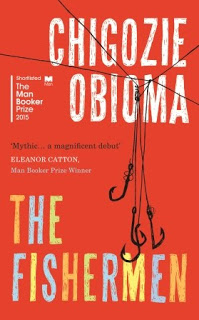The Writer Competition is an online ‘reality’ writing competition created by TheNakedConvos which has been run for 3 successful editions, where contestants are given a topic or theme to write on each week and you, the public, as well as our judges, assess them and vote to keep the best writers in the game until we have one writer left standing, our winner – The Writer. The online reality aspect of the competition stems from the fact that evictions are done live online via social media platforms. Over the last three editions, we have had great competitions and this year it promises to be more exciting with higher quality writing, more drama and more at stake.
The Process
12 Finalists will be shortlisted from the qualification entry submissions based on the quality of their flash fiction. These writers will be mentored by our judges and will contest in four rounds of the online writing competition where we will evict three contestants every week.
The competition will require all writers to send in their short, themed stories weekly by a fixed deadline. The stories from contestants will be put up for members of the public to read and vote for.
At the end of the voting period, the panel of judges will evaluate the stories and score them using pre-communicated criteria.
The public votes from the audience (50%) and the votes from the judges (50%) will be combined into a single score and based on this contestants with the lowest scores will be eliminated weekly until there is only one left standing – THE WRITER.
Who is it for?
The competition is for all Africans who love to write. There is no age, nationality or location restriction. All African citizens are encouraged to send in pre-qualification entries to be considered.
How to qualify?
To stand a chance to qualify for the competition, simply write and send in a piece of flash fiction that is not more than 300 words long (it can be less than this but definitely not more). Please submit as an attachment in Microsoft Word format.
There is no theme for the pre-qualification entry. Send us your shortest and best piece. It can be flash fiction about anything. Set anywhere. Any genre. Any style — you get the picture. Be creative – the more creative and well written, the better your chances of qualifying.
Send your entry to thewriter@thenakedconvos.com on or before Midnight, West Africa Time March 31, 2016. The competition itself will run for 4 weeks in May 2016.
Submissions must be Flash FICTION stories. Poetry and Opinion pieces will NOT be considered.
Only shortlisted writers will be contacted. Writers will be contacted only by e-mail. Please include your full name, phone number and a valid e-mail address in your submission which we will use for continued correspondence, even if it is the same email address you use to send in the entry.
Only one entry is allowed per writer. The work must be the work of the person whose name is stated in the email.
The Prizes
At the end of The Writer competition, there will be three winners,
First Place – N200,000
Second Place – N150,000
Third Place – N100,000
All 12 shortlisted Writers will also be invited specially to have their stories published in an Anthology and will be paid professional rates.
————
That’s it people.
Get excited. Get ready to write. Get ready to read. Get ready to judge. Get ready to vote.
THE WRITER SEASON FOUR BEGINS NOW!















